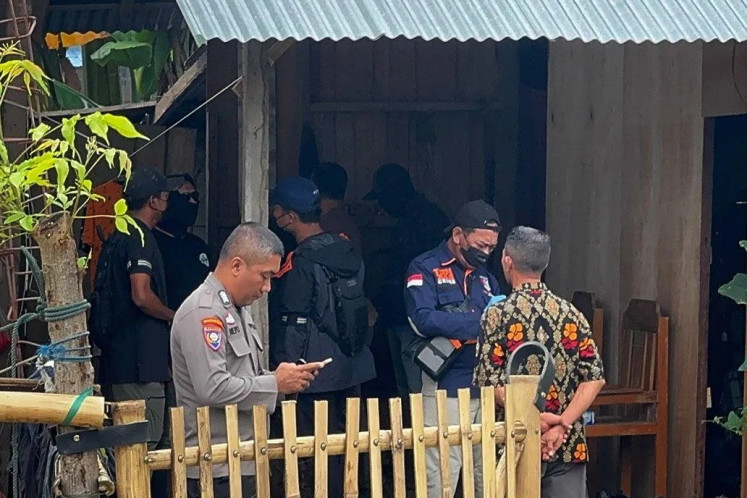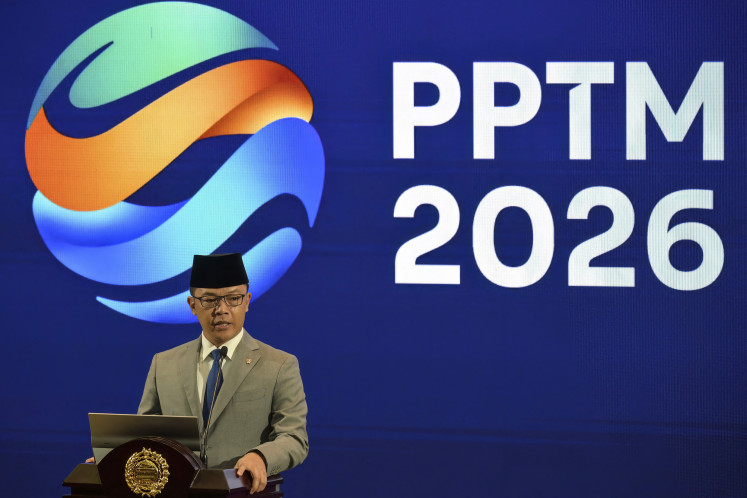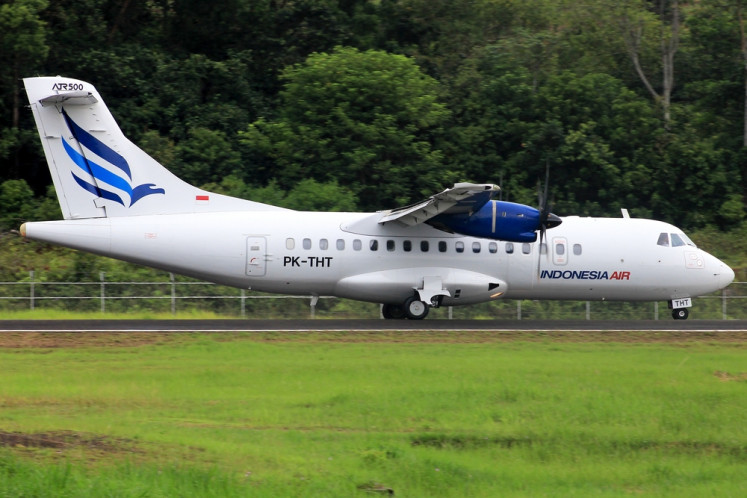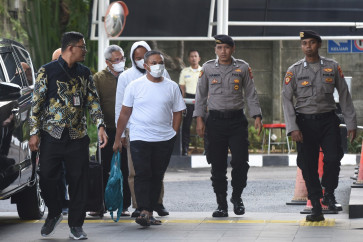Popular Reads
Top Results
Can't find what you're looking for?
View all search resultsPopular Reads
Top Results
Can't find what you're looking for?
View all search resultsAnalysis: Riau politicians' penchant for old-fashioned corruption
Change text size
Gift Premium Articles
to Anyone
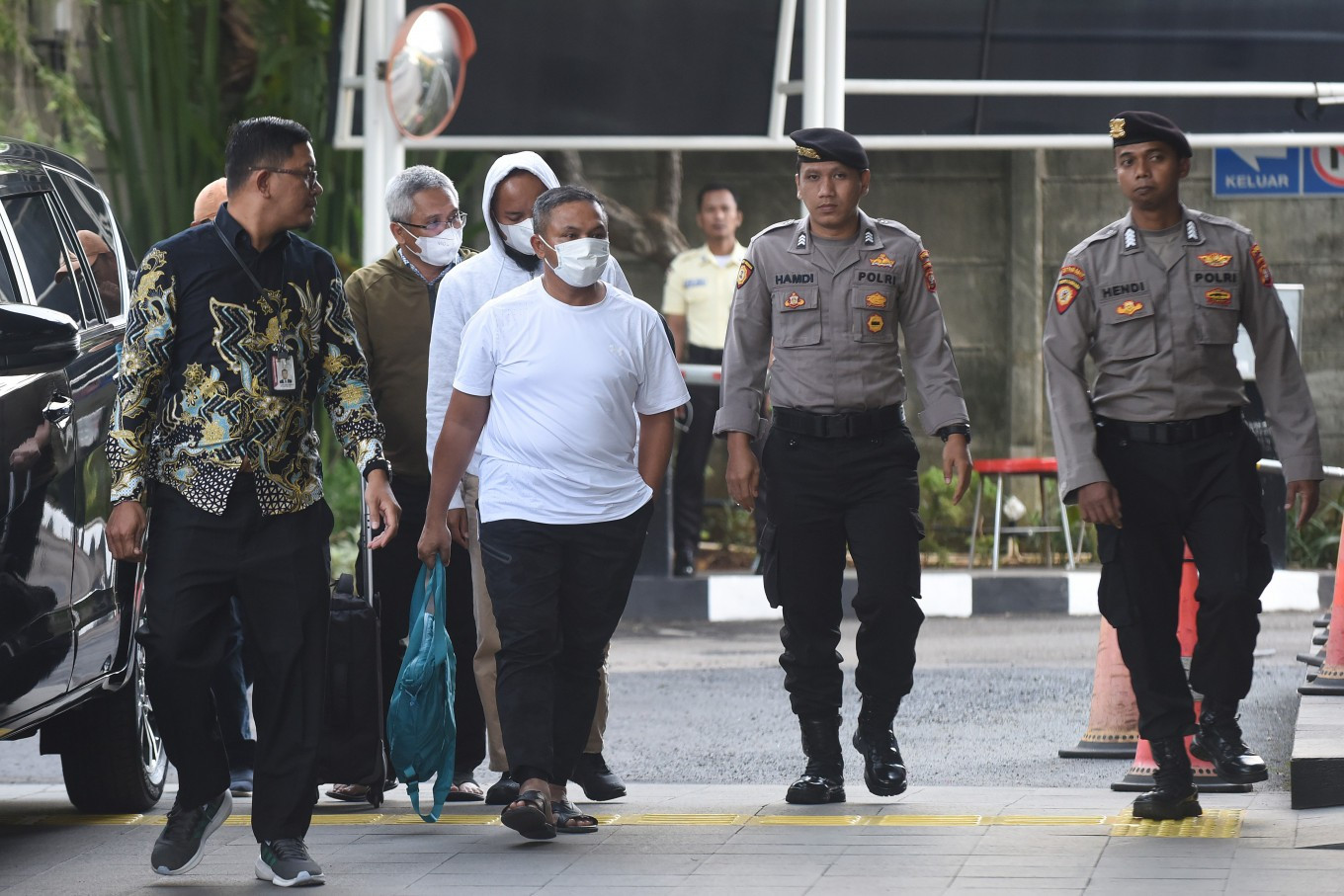 Riau Governor Abdul Wahid is escorted by police officers and Corruption Eradication Commission (KPK) investigators in front of the KPK headquarters in South Jakarta on Nov. 4, 2025. The KPK arrested the governor along with several senior provincial officials a day earlier during a raid in Riau. (Antara/Indrianto Eko Suwarso)
Riau Governor Abdul Wahid is escorted by police officers and Corruption Eradication Commission (KPK) investigators in front of the KPK headquarters in South Jakarta on Nov. 4, 2025. The KPK arrested the governor along with several senior provincial officials a day earlier during a raid in Riau. (Antara/Indrianto Eko Suwarso)
D
espite the rise in graft scandals over the past year, a recent sting operation by the Corruption Eradication Committee (KPK) in Riau signals that systemic corruption in the country is showing no sign of slowing down.
On Nov. 3, KPK investigators arrested Riau Governor Abdul Wahid along with his confidant Tata Maulana at a cafe in provincial capital Pekanbaru. The graft probe was initiated in May 2025 after the antigraft body received a tip from local residents alleging potential foul play between Abdul and the province's Public Works and Spatial Planning Agency.
Investigators uncovered an illicit kickback scheme in which the governor, who hails from the National Awakening Party (PKB), demanded 5 percent of the agency's Rp 177 billion (US$11 million) budget allocation, or around Rp 7 billion, threatening the removal or transfer of officials who refused to meet his demand.
Coming after only nine months in office, the probe found that at least Rp 4.05 billion of the Rp 7 billion demanded had been given to Abdul via close aides and confidants, and were reportedly used for lavish trips to countries like the United Kingdom and Brazil.
The KPK also arrested several others, including agency head Muhammad Arief Setiawan and the governor's expert staffer Dani M. Nursalam.
The Riau governor's case represents a familiar rather than an anomalous pattern, and one that feels old-fashioned. While the scandal centers on infrastructure kickbacks, the country's corruption trend has shifted, according to Indonesia Corruption Watch (ICW). The watchdog noted a major change in 2024 when, for the first time, the biggest financial losses no longer came from infrastructure and procurement projects, but from fictitious reporting related to mining permits.
While infrastructure-related cases like Abdul's accounted for 35 percent of all 364 corruption cases recorded last year, non-infrastructure cases dominated with 65 percent. The Riau case fits the general nationwide pattern, however, with the KPK stating that over 51 percent of all graft cases occurred at the regional level, at both local administrations and legislatures. While most graft schemes today involve document fraud related to licensing and reporting, the Riau case presents a throwback to under-the-table thuggery by those in power.





